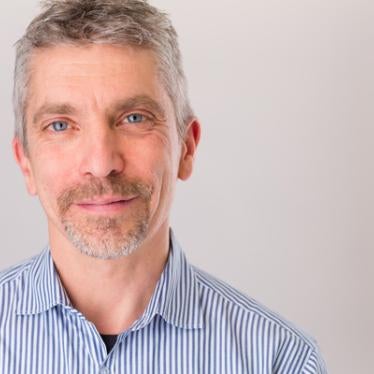The U.N. Human Rights Council recently passed a resolution on “traditional values of humankind” as a vehicle for “promoting human rights and fundamental freedoms.” It sounds innocuous, but its implications are ominous. Indeed, it is an immediate threat to the rights of many vulnerable groups – including women and lesbian, gay, bi-sexual and transgender (LGBT) people. And it flies in the face of the founding principles of universality and indivisibility enshrined in the Universal Declaration of Human Rights.
This is the third Russian-sponsored traditional values resolution adopted by the Human Rights Council. The second, in 2011, called for a study, and the resulting draft study is highly critical of “traditional values” as a framework, criticizing the concept as “vague, subjective and unclear.” The third, though, adopted on September 27, affirms traditional values as a valid framework for human rights.
Underpinning this is an argument that homosexuality is a moral issue and not a rights issue at all. A pernicious development is the recent proliferation of laws in Eastern Europe and Central Asia that seek to curtain freedom of speech by clamping down on “homosexual propaganda” under the pretext of “protecting children.” These laws are vaguely defined and have the effect of outlawing any supportive messages or activism around LGBT issues.
Laws have, for example, been passed or are under discussion in Ukraine, Moldova, Lithuania, Hungary and in Russia’s regions. In March, St. Petersburg became one of the nine regions in Russia to adopt such a law (upheld, albeit restricted, by the Supreme Court in October), a dangerous precedent for similar legislation to be imposed nationwide. The law explicitly conflates homosexuality with pedophilia and outlaws “creating distorted perceptions about social equality of traditional and non-traditional family relationships.” Foreign Minister Sergei Lavrov justified these propaganda laws by arguing that the human rights of LGBT people were nothing but an outside “appendage to the universal values.”
We can see where “traditional values” is headed.
I am South African and these universal core values, which transcend differences in culture, religion and tradition, resonate strongly with my own experience living through the last decades of apartheid and the transition to democracy. For all its shortcomings, the vision for a new South Africa – the antithesis of the old – was based on the idea that we have more in common than what divides us. The apartheid state had long pointed to racial and cultural differences to justify a pernicious ideology and with democracy this was rejected with contempt.
It is appropriate that the cornerstone of our South African constitution – our “never again” pledge – is a bill of rights that enshrines protection against discrimination by state actors or fellow citizens. All the more important because to this day there are those who would restrict the rights of women and strip LGBT people of protection in the name of “tradition.” As a South African, I am deeply suspicious when traditional values are evoked as the basis for human rights – I know only too well how quickly these can be twisted for nefarious ends.
I am gay, and these core values also resonate strongly with my own experience. No one who has grown up in a precarious relationship to family or tradition will take references to traditional values as inherently and invariably good, positive and affirming. I have heard too many stories of people ostracized by their families and rejected by their communities because they are different.
Life within a family can bring affection and productive socialization, but it can also bring violence and oppression. Tradition can give a sense of meaning and connectedness with the past, to something bigger and more enduring than the individual, but it can also be a stick to beat difference, discourage dissent, to keep people in line. I know only too well how these terms are used to justify discrimination and abuse. This is what is at stake at the Human Rights Council.
Gender and sexuality have become one of the fissures within the U.N. Human Rights Council and beyond – an ongoing battle around women’s reproductive rights and the rights of LGBT people. Tradition has been used to justify forced marriage, virginity testing, so-called honor crimes, family violence and marital rape. It is also used to justify the imprisonment of gay men and rape of lesbians.
What is going on here, behind the euphemistic language of the resolution, is very clear: this is a pushback against the incremental claims of women and LGBT people. The “traditional values resolution” is the latest in a series of resolutions that edge the Human Rights Council closer to a relativist position on human rights. If we continue to go down this path then everything is potentially relative and determined by vague concepts such as culture and tradition. For those who are seen to exist outside the neatly defined parameters of culture, this is especially troubling.
There is no doubt that governments will continue to use traditional values as a way of justifying human rights abuses, particularly against the most marginal and vulnerable members of society. But it will be a sad day for the United Nations if human rights abusers are able to turn to a “traditional values” resolution to back up their spurious claims.
When it comes to human rights, universal and relative cannot coexist.








